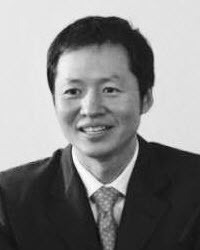[Management in Korea] The chaebol leader’s choice: Retain control or build for the future?
By Korea HeraldPublished : March 31, 2019 - 15:19
Management in Korea is a regular column written by the members of Egon Zehnder Seoul, touching on various aspects of Korean enterprises and business leaders and offering management tips. -- Ed.
Chaebol — which means “money clan” — are called that for a reason: The businesses are inseparable from the families that founded them. It is not unusual for dozens of the companies within a chaebol group to be run by the children, grandchildren and in-laws of the chaebol founder.
But while this arrangement has been so pervasive for so long in Korea that it seems normal, it actually suggests that Korean businesses are stunted in their development and have been unable to move to the next level of their potential.
We can see this if we look more generally at how family-controlled businesses evolve elsewhere in the world. In the beginning, of course, the founder and his or her family both own and run what is essentially an entrepreneurial venture. The business expands, and family members lead various business units, with outsiders brought in as needed for functional positions, like chief financial officer or general counsel.
Chaebol — which means “money clan” — are called that for a reason: The businesses are inseparable from the families that founded them. It is not unusual for dozens of the companies within a chaebol group to be run by the children, grandchildren and in-laws of the chaebol founder.
But while this arrangement has been so pervasive for so long in Korea that it seems normal, it actually suggests that Korean businesses are stunted in their development and have been unable to move to the next level of their potential.
We can see this if we look more generally at how family-controlled businesses evolve elsewhere in the world. In the beginning, of course, the founder and his or her family both own and run what is essentially an entrepreneurial venture. The business expands, and family members lead various business units, with outsiders brought in as needed for functional positions, like chief financial officer or general counsel.


As the enterprise continues to grow, so will the number of leadership roles that fall outside the family’s expertise and experience. A non-family member might be brought in to oversee digital transformation or the management of operations in a distant region. Family members, however, will still dominate, if not exclusively hold, the top positions.
At some point, however, the business expands to the point where the family -- in its role as owners looking to maximize their return -- decides that the enterprise will be more profitable and have a stronger long-term future with a majority-independent board and where the CEO and most, if not all, of the other leadership roles come from outside the family. Consider that Wal-Mart, the world’s largest family-owned company, has been run by an executive from outside the family since 1988.
However, there is another factor to be considered: Not only are most chaebol groups publicly held, but family holdings have become diluted to the point where most families now only own a small fraction of the companies they founded. Because of this, unlike the owner families of Wal-Mart, a chaebol that gives up its leadership positions and installs an independent board of directors will then be without either majority ownership or control. Their position will more akin to that of a significant institutional investor with a seat on the company board.
For chaebol leaders, this no doubt sounds like an unappealing alternative to the current state of affairs. But they should not be so quick to dismiss this possibility. As many CEOs in developed market economies will attest, what institutional investors lack in direct control they make up for in influence. And it is an influence that can extend far beyond the affairs of a single corporate group to shape national corporate governance standards, exchange regulations and general business culture.
And a Korea whose major companies were in the hands of independent directors and CEOs — and thus answerable to shareholders — would very likely be more responsive to institutional investors than is now the case.
In pondering the future, chaebol leaders should also remember that the ability of their firms to continue to thrive is actually a matter of national concern: As of 2017, the revenue of Korea’s 10 largest conglomerates account for 44 percent of the country’s GDP.
Suppose we make the conservative assumption that opening up those 10 companies to outside leadership increases annual profits by 10 percent. That by itself translates into a 4.4 percent jump in the national economy -- significantly more than the 3 percent annual growth averaged since 2011.
Korea’s continued reliance on chaebol and their leadership is particularly relevant today because of the overall geopolitical and economic uncertainty of our times. The effects of the slowdown in semiconductor sales, ongoing shifts in technology and the turbulence in US-China relations points to the need for Korea to diversify its economy and increase its ability to respond to unforeseen developments. It will be difficult for this to take place unless Korean businesses give themselves access to the full pool of leadership talent available.
If appeals to national well-being are not persuasive, chaebol leaders can ask themselves a timeless question of enlightened self-interest: Is it better to own, say, 8 percent of an enterprise better equipped for the past than the future, or to own 8 percent of a company optimally positioned for growth, even if that means giving up control? How chaebol leaders answer that question will help set the direction of their country, their companies and their legacy.
By Eugene Kim and Nam You-sun
Eugene Kim is the managing partner of advisory firm Egon Zehnder Seoul. He can be reached at Eugene.Kim@egonzehnder.com. Nam You-sun is the research analyst at Egon Zehnder Seoul. She can be reached at Yousun.nam@egonzehnder.com. -- Ed.
At some point, however, the business expands to the point where the family -- in its role as owners looking to maximize their return -- decides that the enterprise will be more profitable and have a stronger long-term future with a majority-independent board and where the CEO and most, if not all, of the other leadership roles come from outside the family. Consider that Wal-Mart, the world’s largest family-owned company, has been run by an executive from outside the family since 1988.
However, there is another factor to be considered: Not only are most chaebol groups publicly held, but family holdings have become diluted to the point where most families now only own a small fraction of the companies they founded. Because of this, unlike the owner families of Wal-Mart, a chaebol that gives up its leadership positions and installs an independent board of directors will then be without either majority ownership or control. Their position will more akin to that of a significant institutional investor with a seat on the company board.
For chaebol leaders, this no doubt sounds like an unappealing alternative to the current state of affairs. But they should not be so quick to dismiss this possibility. As many CEOs in developed market economies will attest, what institutional investors lack in direct control they make up for in influence. And it is an influence that can extend far beyond the affairs of a single corporate group to shape national corporate governance standards, exchange regulations and general business culture.
And a Korea whose major companies were in the hands of independent directors and CEOs — and thus answerable to shareholders — would very likely be more responsive to institutional investors than is now the case.
In pondering the future, chaebol leaders should also remember that the ability of their firms to continue to thrive is actually a matter of national concern: As of 2017, the revenue of Korea’s 10 largest conglomerates account for 44 percent of the country’s GDP.
Suppose we make the conservative assumption that opening up those 10 companies to outside leadership increases annual profits by 10 percent. That by itself translates into a 4.4 percent jump in the national economy -- significantly more than the 3 percent annual growth averaged since 2011.
Korea’s continued reliance on chaebol and their leadership is particularly relevant today because of the overall geopolitical and economic uncertainty of our times. The effects of the slowdown in semiconductor sales, ongoing shifts in technology and the turbulence in US-China relations points to the need for Korea to diversify its economy and increase its ability to respond to unforeseen developments. It will be difficult for this to take place unless Korean businesses give themselves access to the full pool of leadership talent available.
If appeals to national well-being are not persuasive, chaebol leaders can ask themselves a timeless question of enlightened self-interest: Is it better to own, say, 8 percent of an enterprise better equipped for the past than the future, or to own 8 percent of a company optimally positioned for growth, even if that means giving up control? How chaebol leaders answer that question will help set the direction of their country, their companies and their legacy.
By Eugene Kim and Nam You-sun
Eugene Kim is the managing partner of advisory firm Egon Zehnder Seoul. He can be reached at Eugene.Kim@egonzehnder.com. Nam You-sun is the research analyst at Egon Zehnder Seoul. She can be reached at Yousun.nam@egonzehnder.com. -- Ed.
-
Articles by Korea Herald





![[From the Scene] Monks, Buddhists hail return of remains of Buddhas](http://res.heraldm.com/phpwas/restmb_idxmake.php?idx=644&simg=/content/image/2024/04/19/20240419050617_0.jpg&u=20240419175937)









![[From the Scene] Monks, Buddhists hail return of remains of Buddhas](http://res.heraldm.com/phpwas/restmb_idxmake.php?idx=652&simg=/content/image/2024/04/19/20240419050617_0.jpg&u=20240419175937)

![[KH Explains] Hyundai's full hybrid edge to pay off amid slow transition to pure EVs](http://res.heraldm.com/phpwas/restmb_idxmake.php?idx=652&simg=/content/image/2024/04/18/20240418050645_0.jpg&u=20240419100350)

![[Today’s K-pop] Illit drops debut single remix](http://res.heraldm.com/phpwas/restmb_idxmake.php?idx=642&simg=/content/image/2024/04/19/20240419050612_0.jpg&u=)